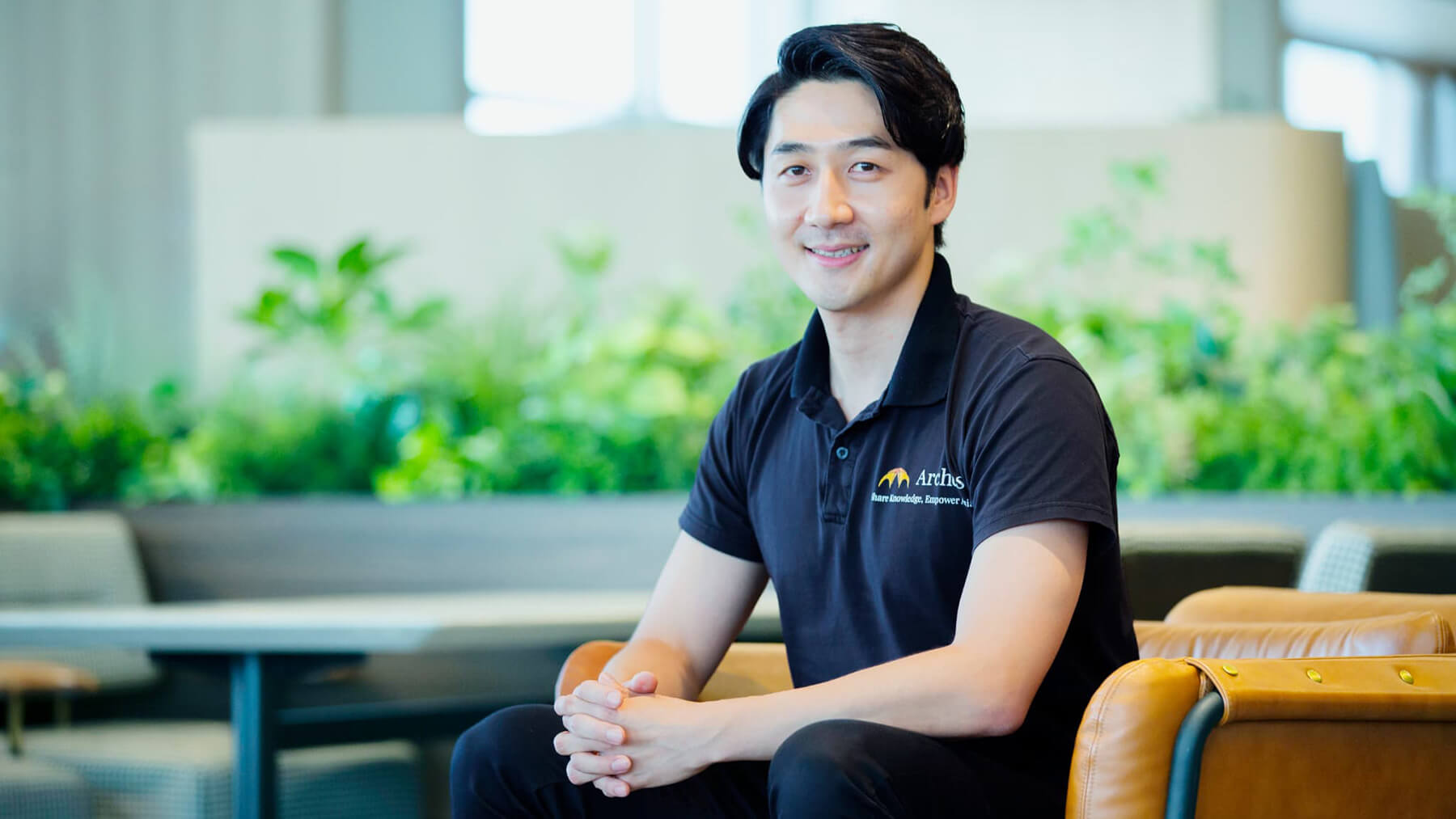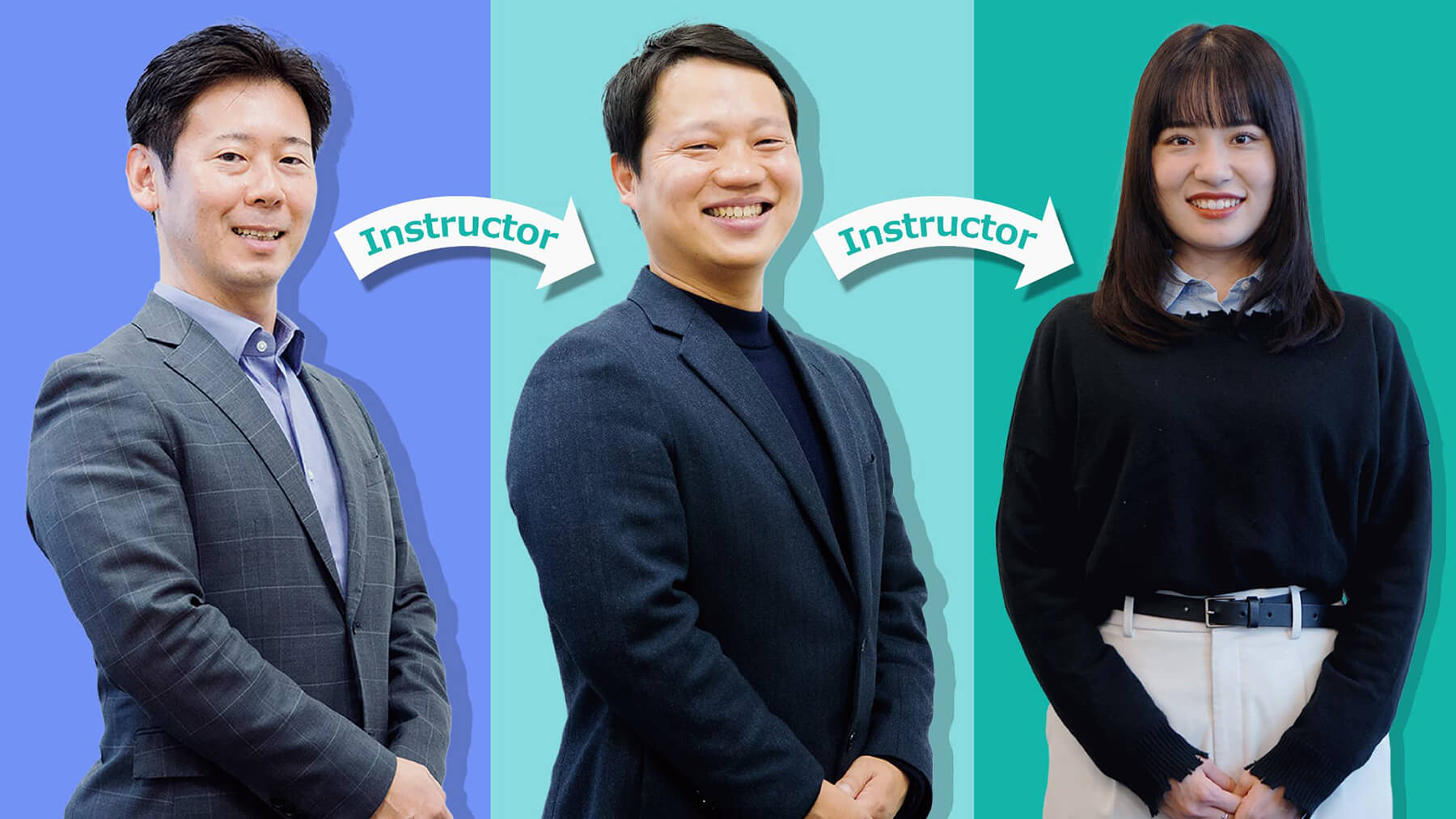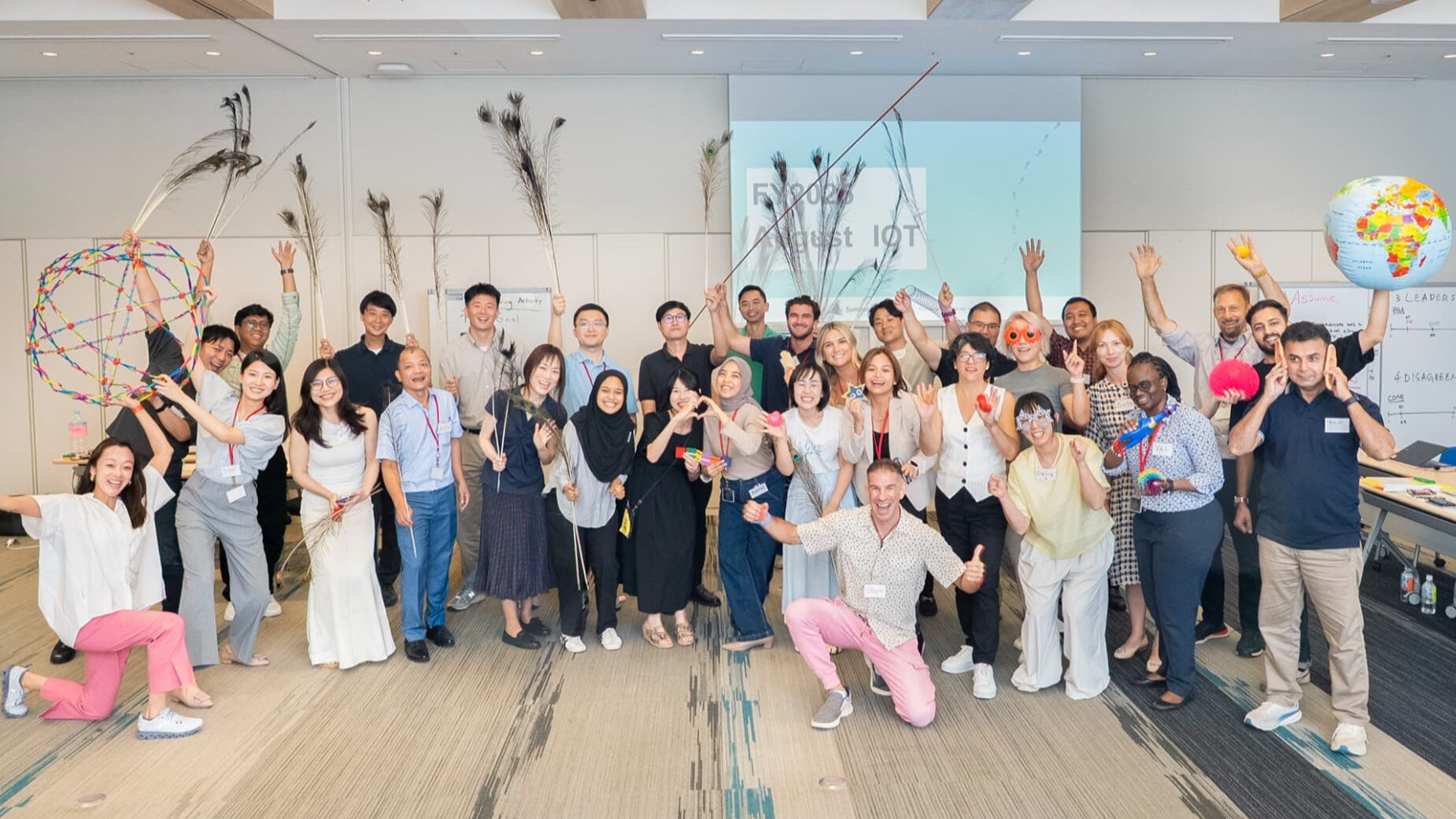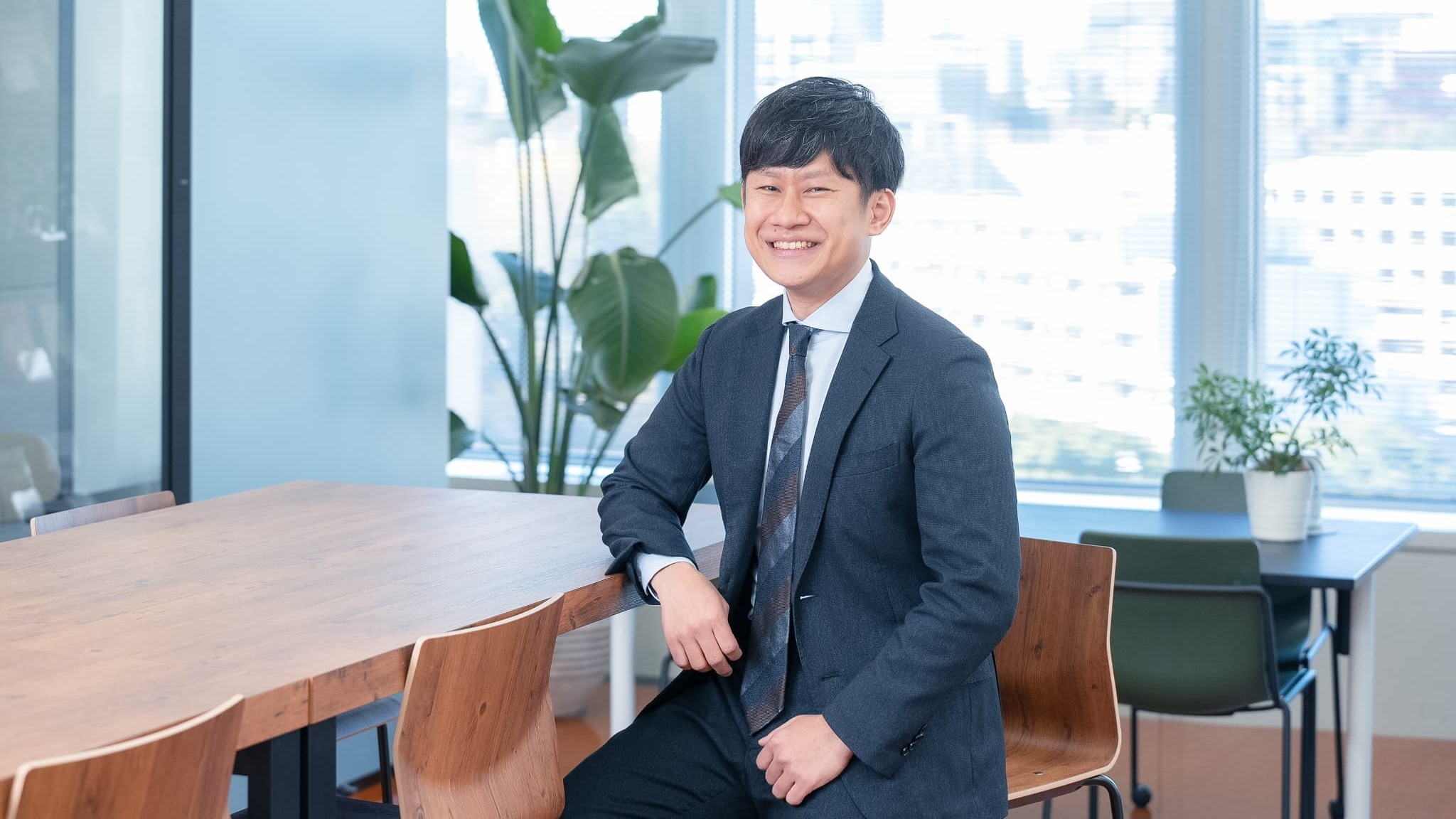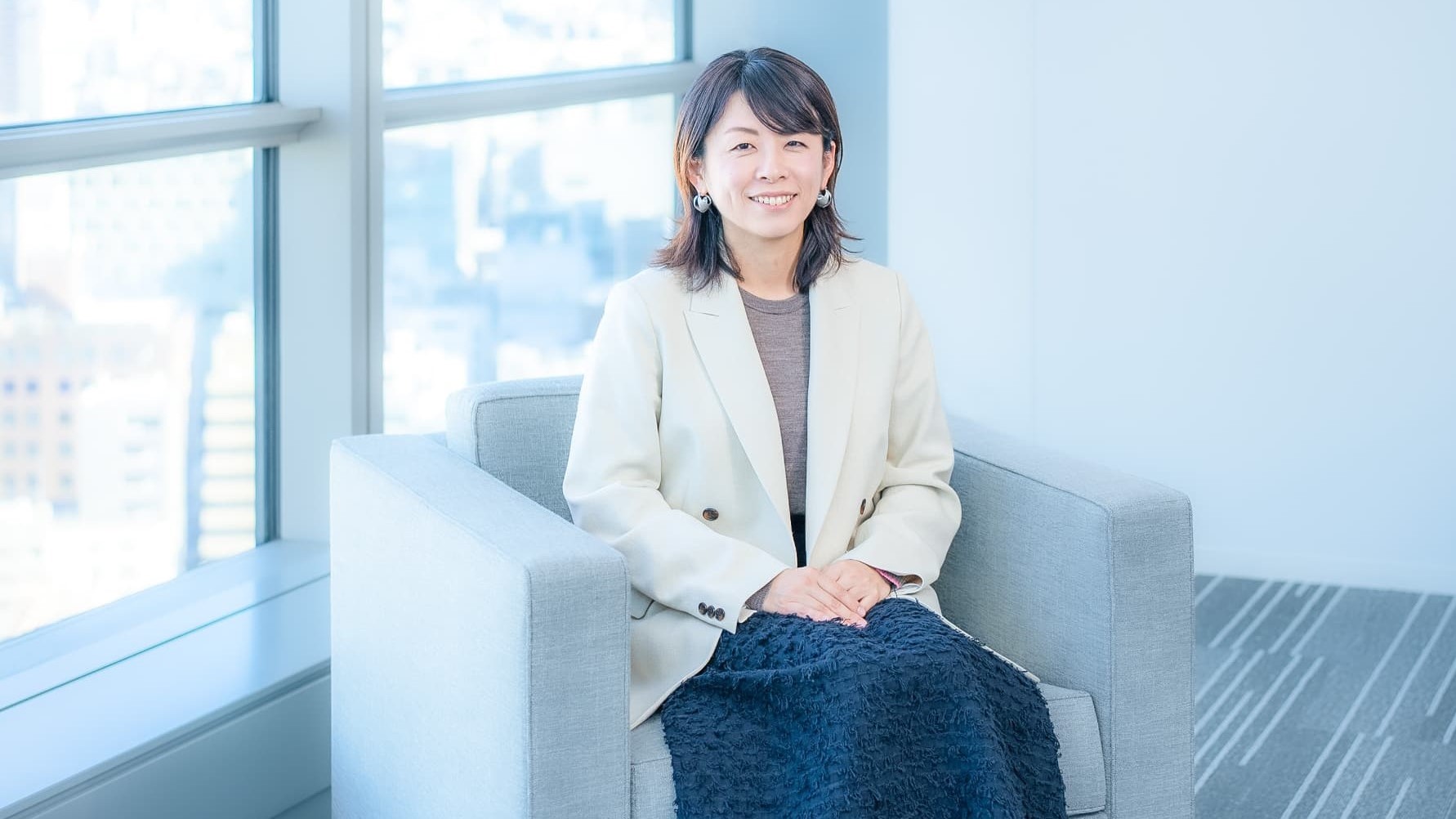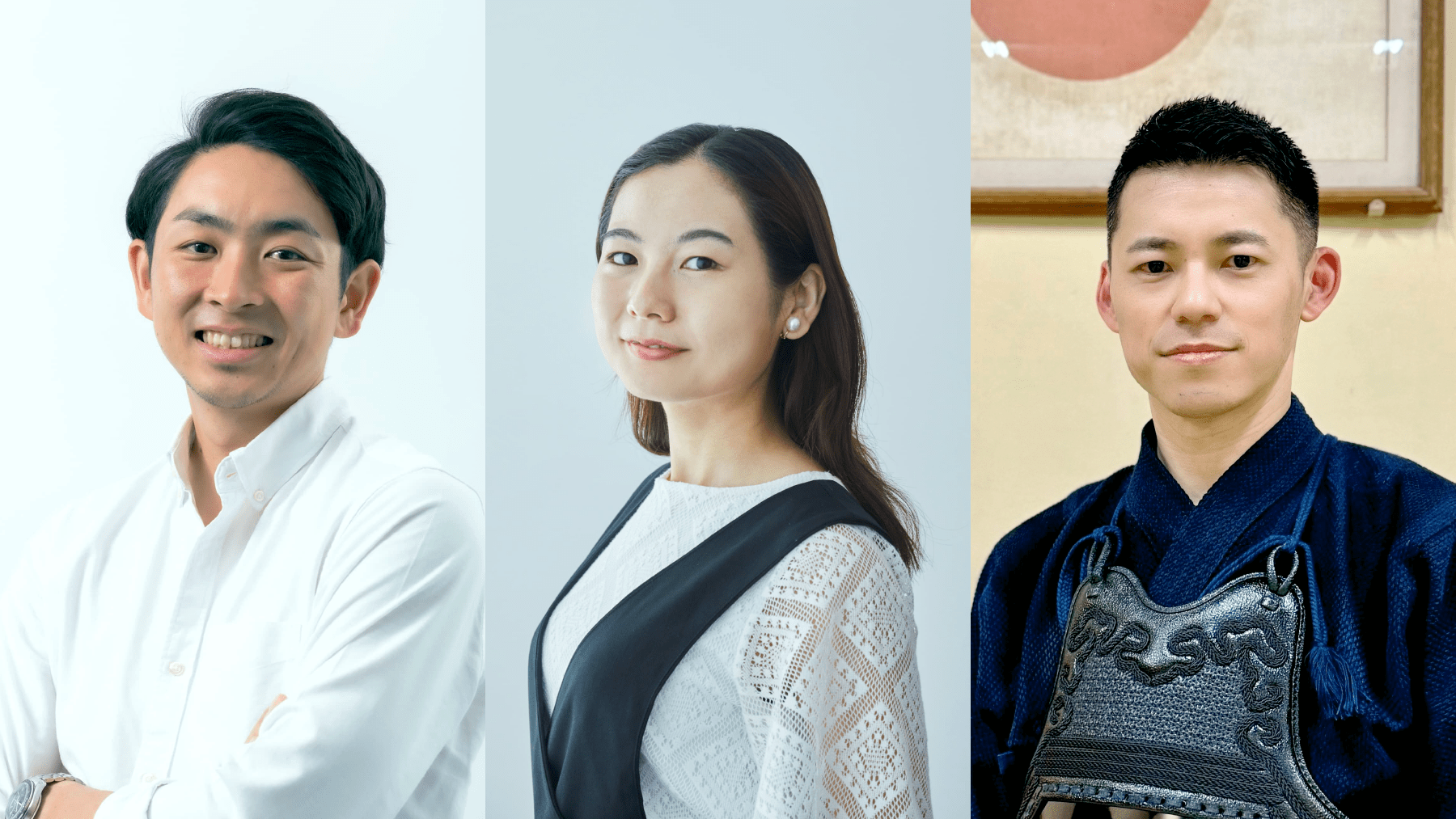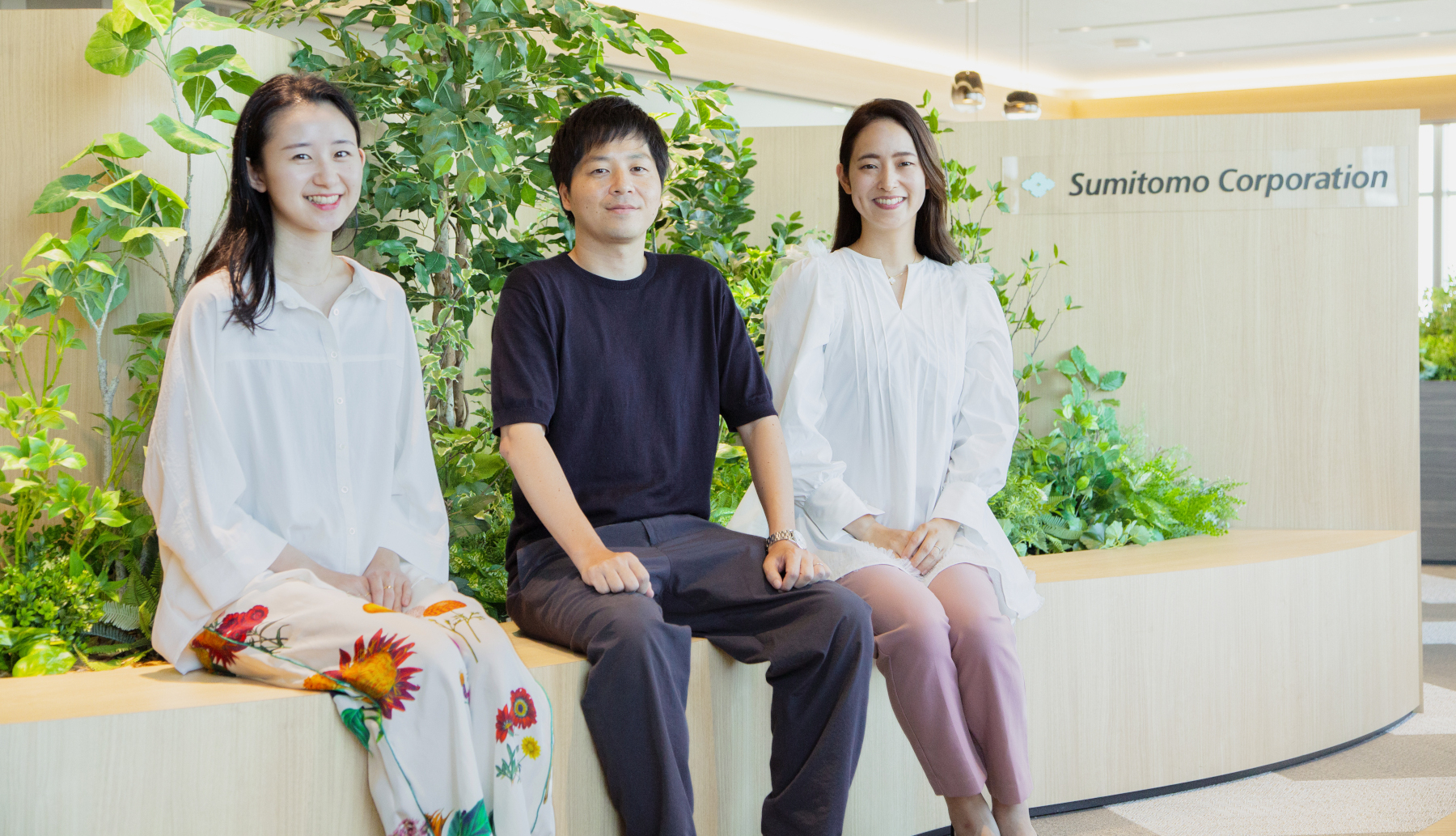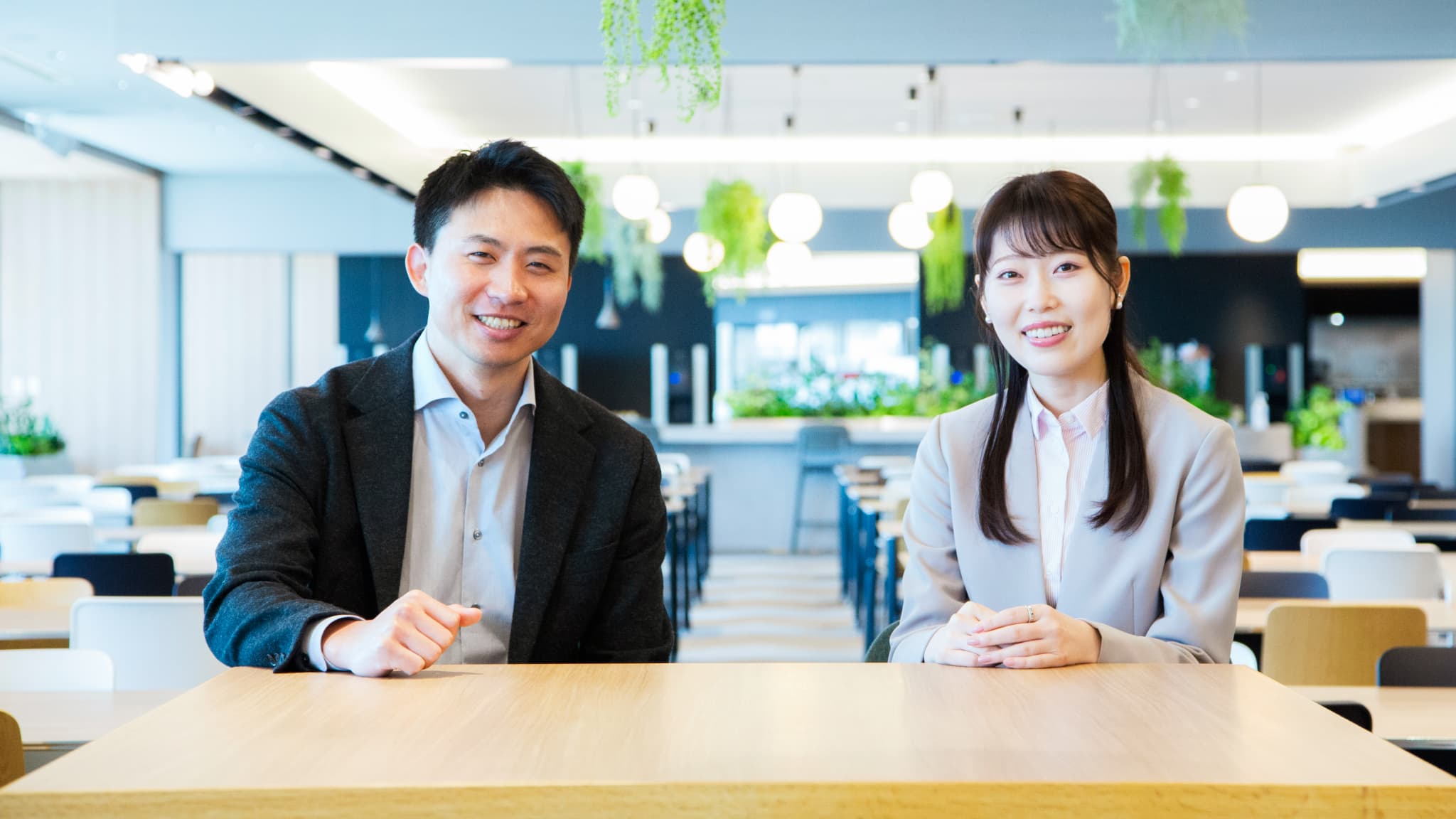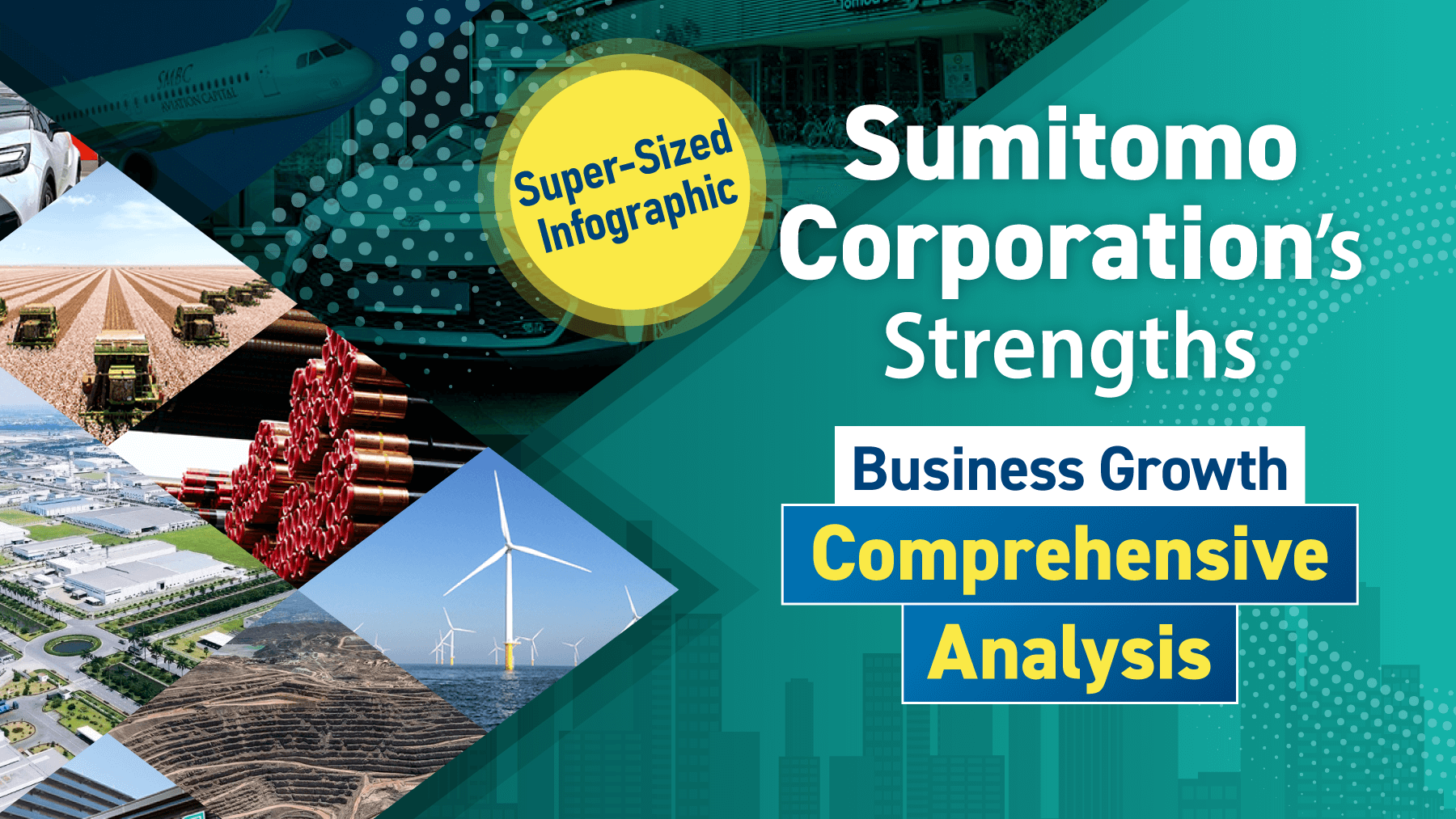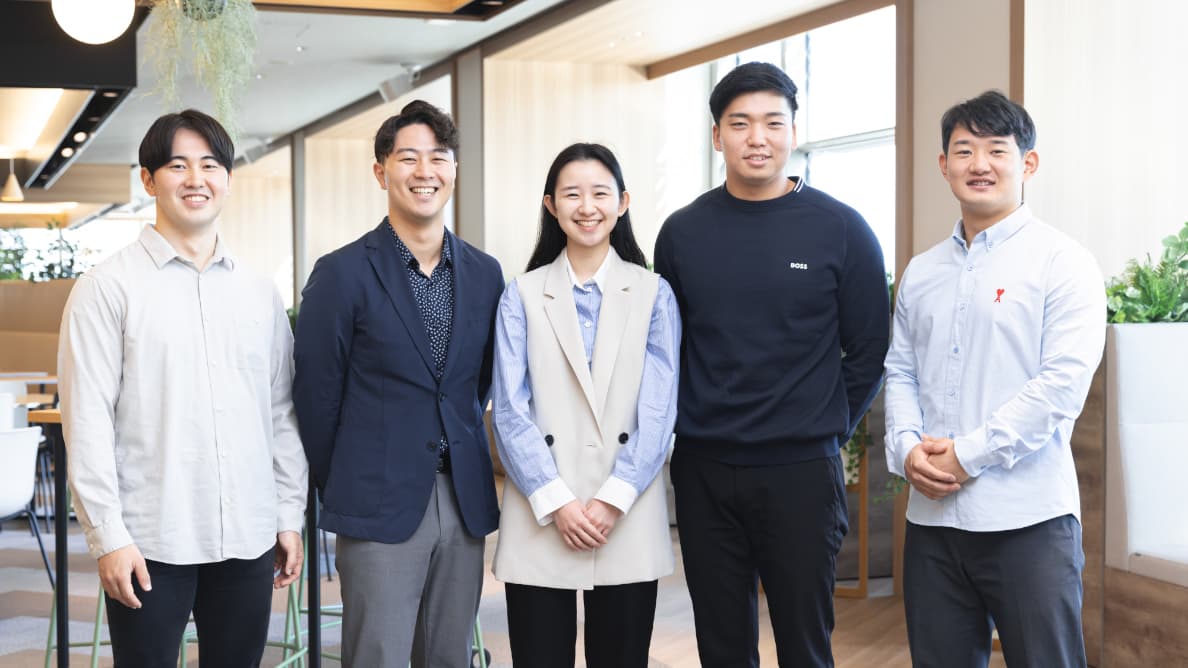
- TOP
- Enriching+TOP
- From Sumitomo Corporation to Accounting on the Global Stage: An Aoyama Gakuin Professor Shaping Global Standards
2025.11.18
Culture
From Sumitomo Corporation to Accounting on the Global Stage: An Aoyama Gakuin Professor Shaping Global Standards
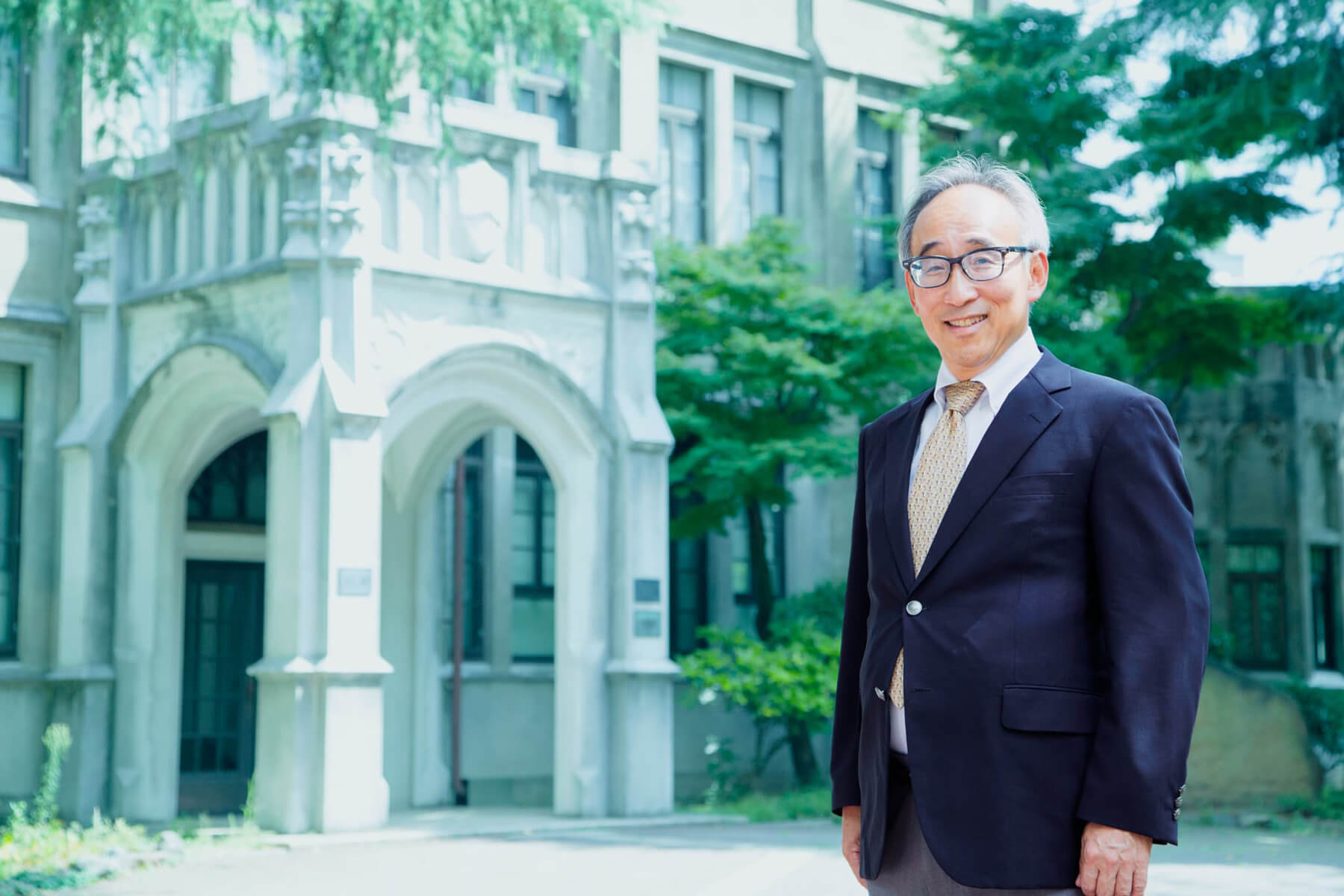
This series shines a spotlight on alumni employees who thrive in companies and fields outside of Sumitomo Corporation. Today we spoke with Takatsugu Ochi, who spent 30 years at Sumitomo Corporation engaged in accounting operations and later contributed to the development of International Financial Reporting Standards (IFRS). He now serves as a Specially Appointed Professor at the Graduate School of Professional Accountancy, Aoyama Gakuin University, where he is dedicated to cultivating the next generation of accounting professionals. Drawing on three decades of hands-on experience at Sumitomo Corporation, Ochi reflects on his career and the challenge of helping shape international accounting standards.
-
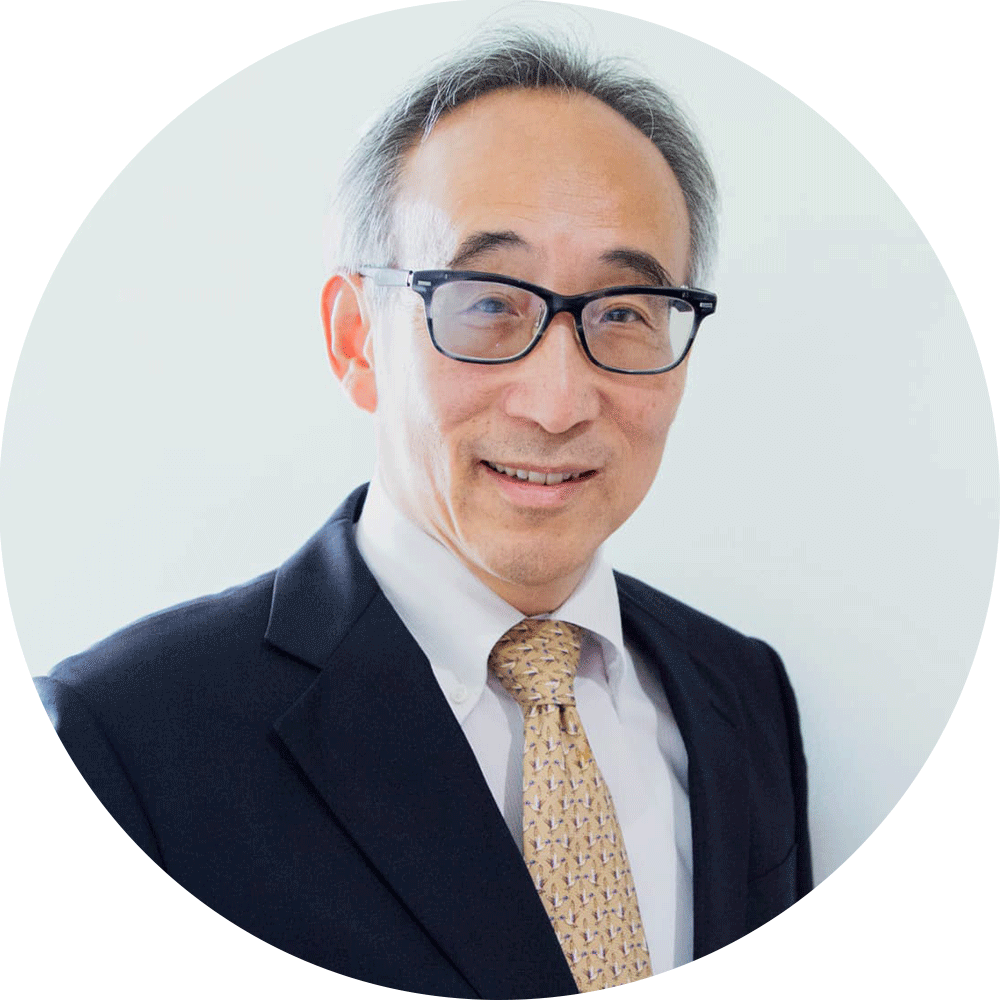
Specially Appointed Professor, Graduate School of Professional Accountancy, Aoyama Gakuin University
Takatsugu Ochi
Ochi joined Sumitomo Corporation in 1981 as a new graduate and spent his career in the Accounting Controlling Department. After a posting in London, he served as project leader for the J-SOX internal control initiative. In 2006, he became a member of the IFRS Interpretations Committee, and in 2011 he retired from Sumitomo Corporation to take up a post as a Board Member of the International Accounting Standards Board (IASB). He assumed his current position in 2024.

- A Truly Fascinating Accounting Career Sparked by An Encounter With U.S. Standards
- From "Amateur Ball" to the "Major Leagues" – Competing With Global Experts
- Creating Standards Underpinning the Global Economy With Just 14 Experts
- Sumitomo Corporation's Integrity and Honest Disclosure in Its Financial Statements
A Truly Fascinating Accounting Career Sparked by An Encounter With U.S. Standards
To begin, could you tell us why you joined Sumitomo Corporation, and what your first assignment was?
I was drawn to the company's regional Kansai character and steady, down-to-earth corporate culture. It was an era when the financial industry was undergoing major change in the wake of the Nixon shock, and I was interested in foreign exchange, so I hoped to join a finance-related division. However, I was assigned to what is now the Accounting Controlling Department. To be honest, I didn't find the work very engaging at first, and for the first few years I couldn't say I was highly motivated.
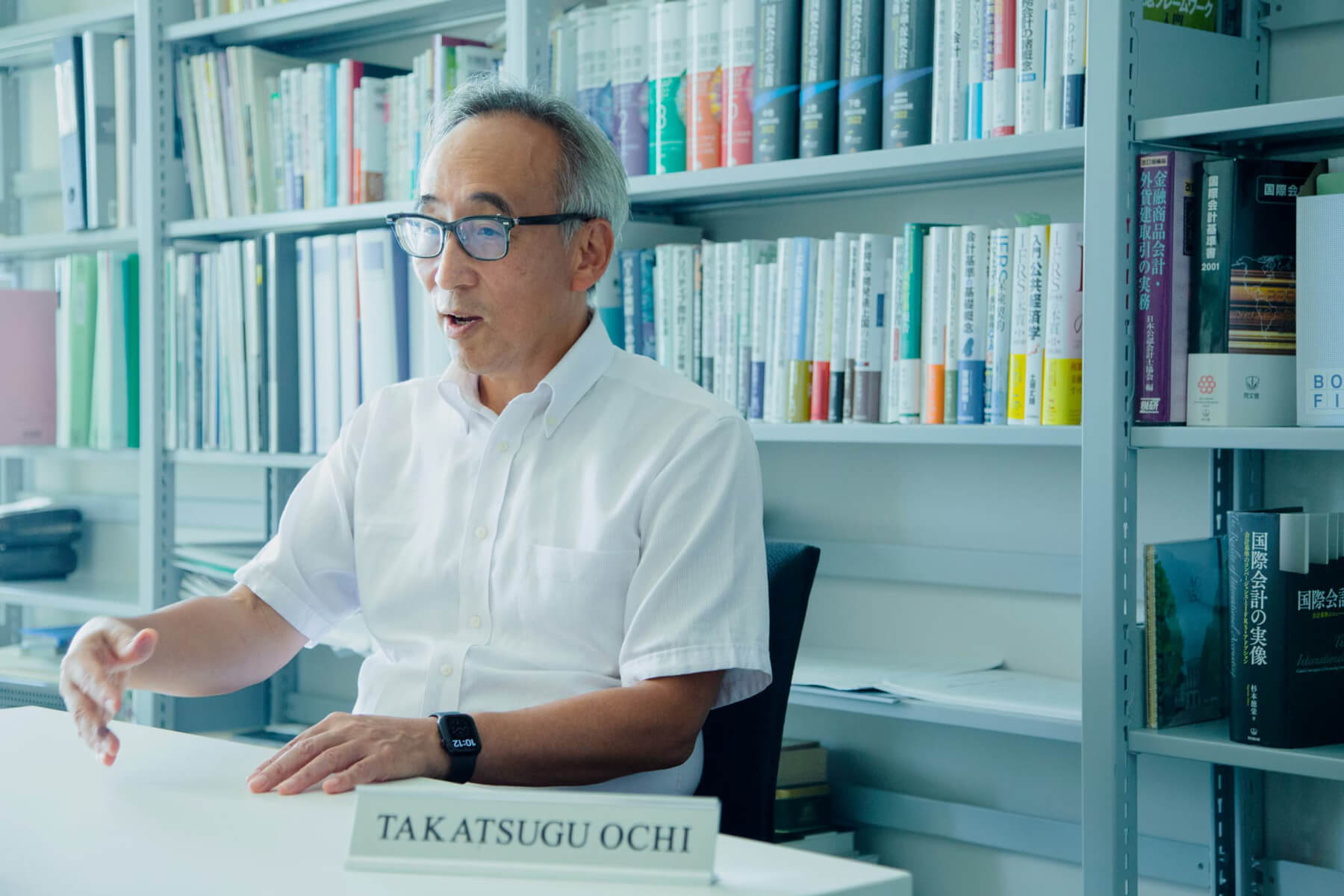
What changed the situation for you?
In my fifth year, I was assigned to handle consolidated financial statements under U.S. accounting standards. Until then, I'd thought accounting was simply about following prescribed rules and processing transactions mechanically. But U.S. standards require you to take a broader view of a company's activities and capture the underlying economic reality of transactions, and to reflect that faithfully in financial statements. Encountering this approach, I thought it was truly fascinating. I was also struck by the fact that the standards forming the very foundation of the global economy were determined by just seven members of the Financial Accounting Standards Board (FASB). That realization left a strong impression on me.
To illustrate the concept behind U.S. accounting standards, take lease accounting as an example. If you lease a table for your office, legally it's "borrowed," so it doesn't count as an asset. But if you continue paying rental fees for that table over several years, in substance it functions as an asset, doesn't it? In such cases, U.S. standards treat it as a company asset and include it on the balance sheet (a statement showing the company’s financial position). In short, U.S. standards emphasize substance over form.
That encounter with U.S. accounting principles set the course for my entire career – from my 30 years at Sumitomo Corporation to my work after leaving the company – along a path of deepening my expertise in accounting.
From "Amateur Ball" to the "Major Leagues" – Competing With Global Experts
In 2006, while still at Sumitomo Corporation, you were appointed to the IFRS Interpretations Committee and stepped onto the international stage.
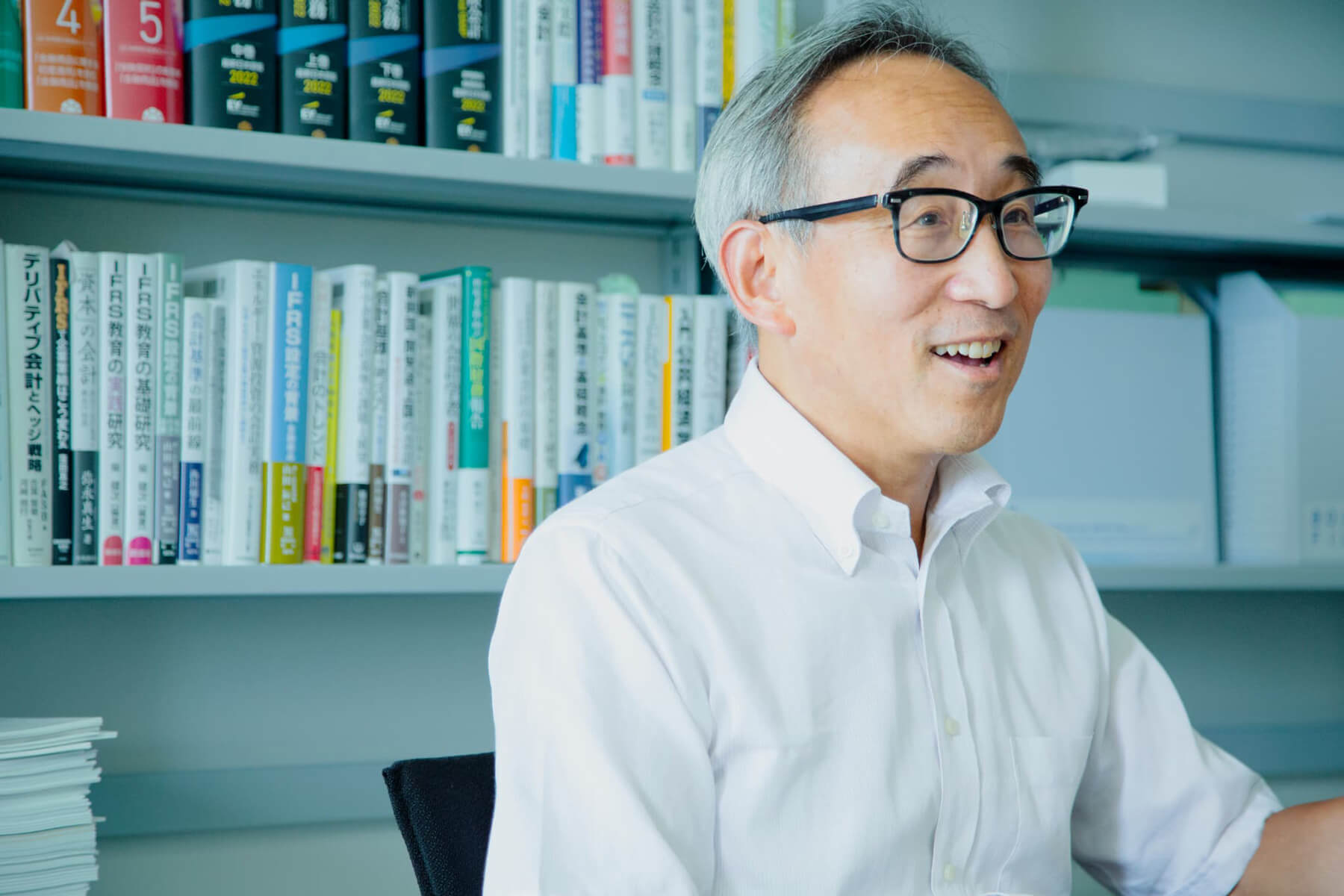
At that time, Tatsumi Yamada, a Sumitomo Corporation alumnus and my predecessor in the U.S. accounting role, was serving as a Board Member of the International Accounting Standards Board (IASB). He recommended me for the position, and I took on the committee role in parallel with my work at the company. The IASB is the body responsible for setting IFRS, which aims to establish globally consistent accounting standards. The IFRS Interpretations Committee, operating under the IASB, plays a key role in determining how IFRS should be applied in practice. When I joined in 2006, IFRS principles had been outlined, but many interpretative details were still under development.
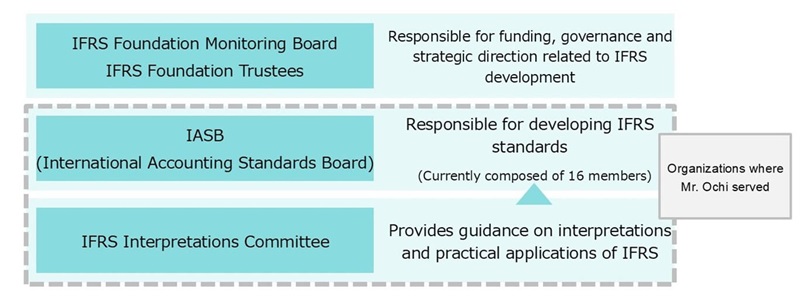
What was your experience like working in an international organization?
All the other members were senior partners or global leaders from major auditing firms. At first, I felt as though I'd stepped up to bat in the major leagues after only ever playing sandlot baseball. But as discussions progressed, it became clear that in some areas, my hands-on experience at Sumitomo Corporation gave me a deeper practical insight than even those accounting specialists.
One example involved the accounting treatment of stripping costs in open-pit mining*. In open-pit mines, large amounts of overburden – the surface layer of soil or rock – must be removed before extracting the ore beneath. IFRS at the time had no specific guidance on how to account for these costs, and practices varied among companies. Removing the overburden incurs costs, but are they simply "expenses," or are they, in effect, an "asset" because they lead to future benefit? Since Sumitomo Corporation was involved in open-pit mining projects, I was able to consult with colleagues who were deeply familiar with the practical realities and bring those insights into the discussion.
*Open-pit mining refers to extracting ore from the surface in a stepped manner. Because it allows for large-scale, efficient extraction without tunneling, it is suited to major mining operations.

So your Sumitomo Corporation experience and network became powerful assets in that international arena?
That's correct. Never before had I been so grateful for Sumitomo Corporation's business diversity. I could draw on trusted colleagues from every conceivable field for insight and go into those meetings with confidence. Some employees might think that "frontline operations" at Sumitomo Corporation are just routine work, but that's not the case. As a top-tier integrated trading and business investment company, Sumitomo Corporation operates at the highest global standards across every sector. My experience on the committee made that clearer than ever.
By nature, accounting must be able to capture and explain all economic activity; anyone working in accounting needs to understand a broad range of business realities. In that sense, the practical experience I gained across Sumitomo Corporation's diverse operations has been one of my greatest professional assets.
Creating Standards Underpinning the Global Economy With Just 14 Experts
In 2011, you left Sumitomo Corporation and became a Board Member of the IASB.

When Mr. Yamada's term ended, I was selected as his successor, thanks to my work on the IFRS Interpretations Committee. The IASB, modeled after the FASB, consisted of 14 members. To maintain independence, Board Members were required to resign from any corporate positions, which meant I had to leave Sumitomo Corporation to take on the role.
What was most challenging about serving as an IASB Board Member?
The IASB brings together accounting experts from around the world. I was the only Japanese member. If I had spoken as though representing Japan's national interests, I would have been dismissed as someone without an independent professional opinion. At the same time, there were aspects of Japan's unique economic realities that only I understood. If I failed to introduce those perspectives, the quality of the resulting standards would have suffered. So I worked very carefully to maintain neutrality while still ensuring that Japan's realities were properly reflected, all the while keeping the ultimate goal of "creating high-quality accounting standards" firmly in focus. It was a profound challenge, but the sense of fulfillment that came in helping shape standards underpinning the global economy was truly extraordinary.
You're now working in academia. How does it compare with business?
I served as an IASB Board Member for eight years, until 2019. After that, I joined Deloitte as a partner and then, through connections in the Japanese Association for International Accounting Studies, I joined Aoyama Gakuin University as a Specially Appointed Professor at the Graduate School of Professional Accountancy.
In fact, becoming a professor had been a dream of mine since my student days. In practice, preparing 90-minute lectures that truly engage students is far more demanding than I expected, but it's deeply rewarding to grow together with them through teaching. I also see it as a major advantage that I can convey the essence of accounting through the lens of the practical experience I gained during my 30 years at Sumitomo Corporation.
Sumitomo Corporation's Integrity and Honest Disclosure in Its Financial Statements
How would you define the essence of accounting?
I'd say it's about capturing and conveying the realities of a dynamic economy to investors. Unlike mathematics, accounting has no single "correct" answer; it's about repeated discussion and reaching consensus. The key question is: on what basis do we make those judgments? The foundation lies in a commitment to providing information that is useful to investors' decision-making, presenting both the good and the bad transparently. This principle is known as the "true and fair view."
The IFRS, which I have long been involved with, adopt a principles-based approach, in contrast to the rules-based nature of Japan's accounting standards. IFRS may seem more flexible because they set only broad principles, but in reality, they demand that each individual involved in accounting possess the discernment to identify what is true. In that sense, IFRS impose a kind of rigor all their own.

Do you think Sumitomo Corporation embodies the essence of accounting?
Absolutely. Sumitomo Corporation's accounting team, guided by the "true and fair view" and committed to conveying useful information to investors, is unquestionably among the best in Japan. When I review Sumitomo Corporation's financial disclosures, I can see that the company reports both successes and setbacks with honesty and transparency. That openness reflects the integrity that Sumitomo Corporation values so deeply.
Finally, what are your hopes for Sumitomo Corporation going forward?
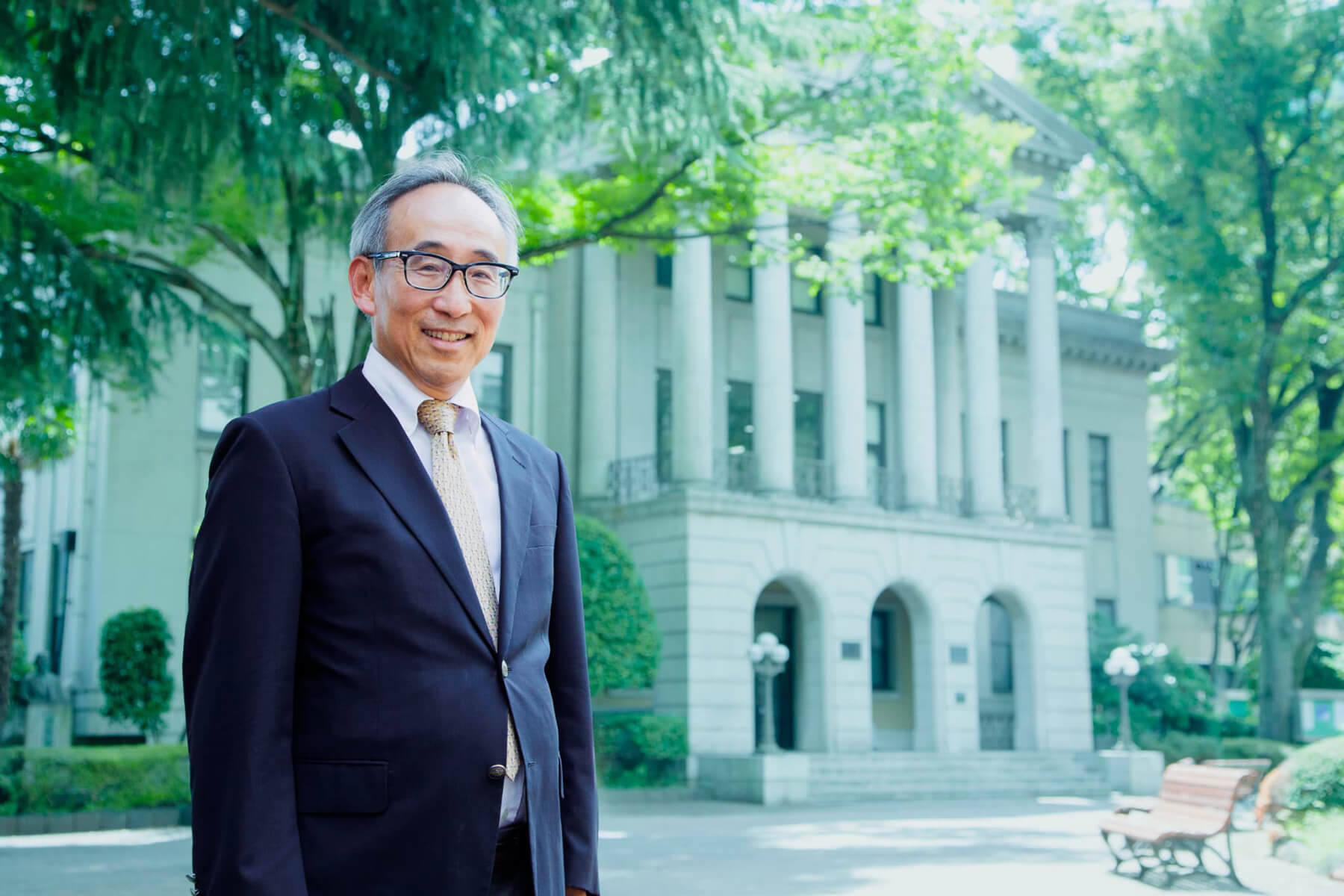
I believe Sumitomo Corporation's understanding of IFRS and its application to diverse businesses has advanced significantly, and its accounting expertise continues to grow. Today, companies face rising expectations for transparency, as well as new challenges such as the rise of crypto assets, which are redefining traditional notions of money, and the evolution of AI, which is reshaping professional roles.
I hope that Sumitomo Corporation employees will venture outside the company to engage with peers across industries, broaden perspectives and become leaders capable of breaking through these challenges, equipped with deep expertise and an understanding of diverse businesses. Above all, I hope they will continue pursuing accounting with confidence, pride and a steadfast commitment to principle. I have high expectations for them.

